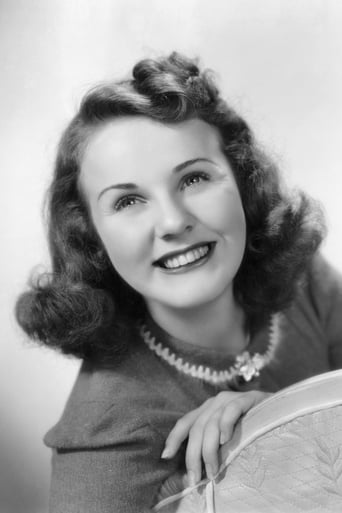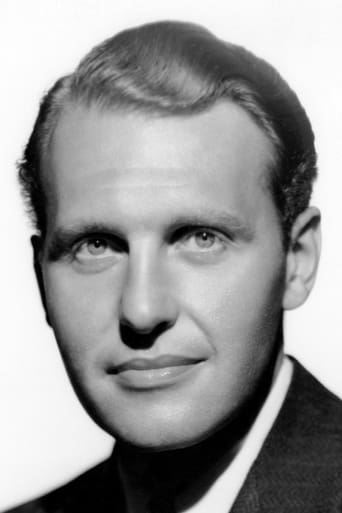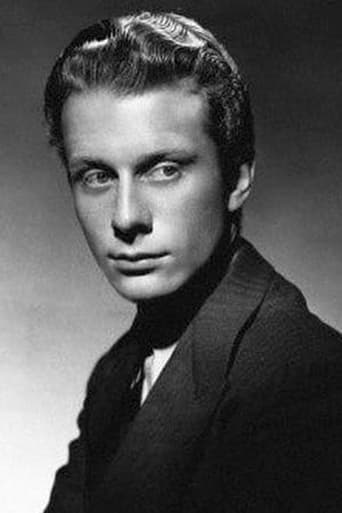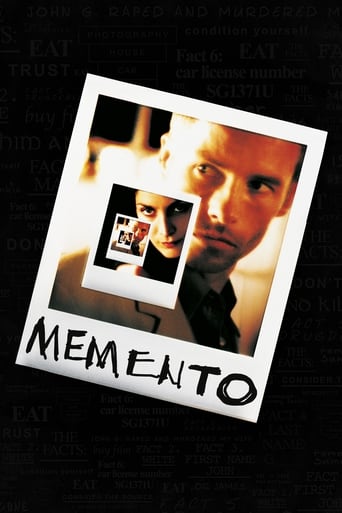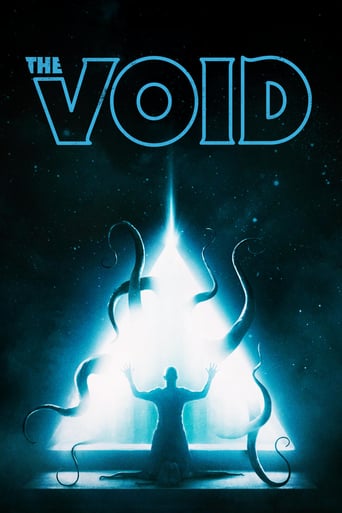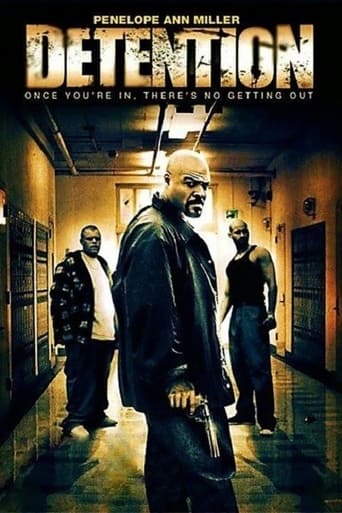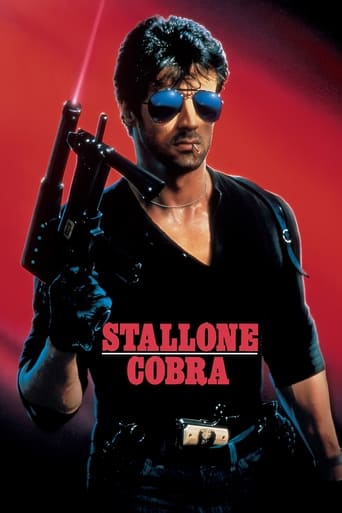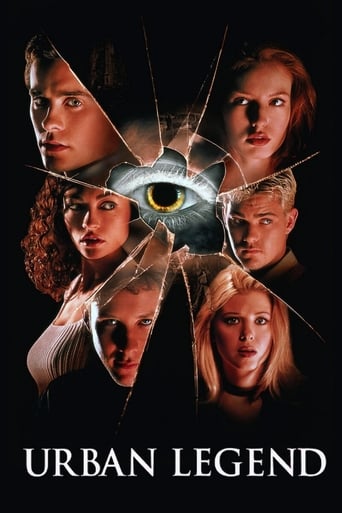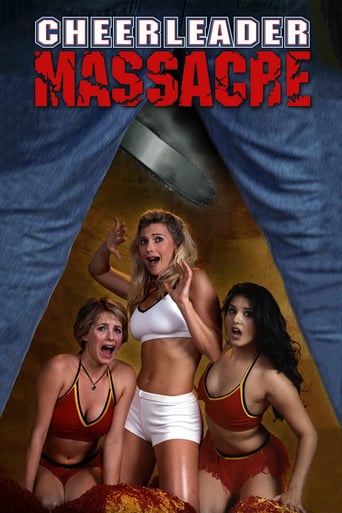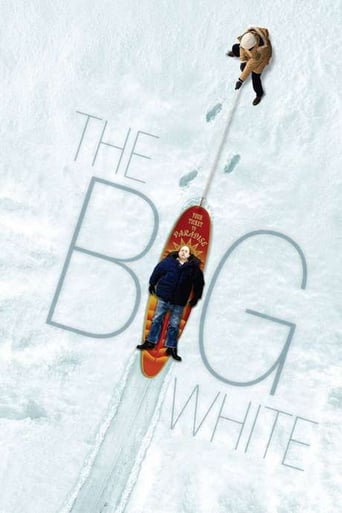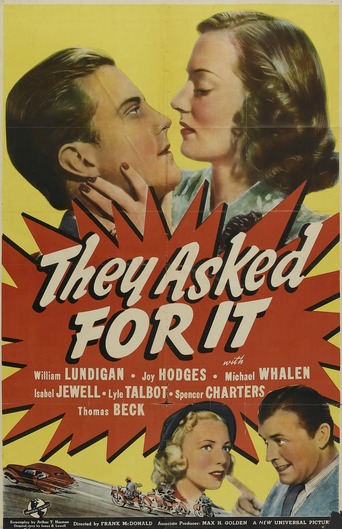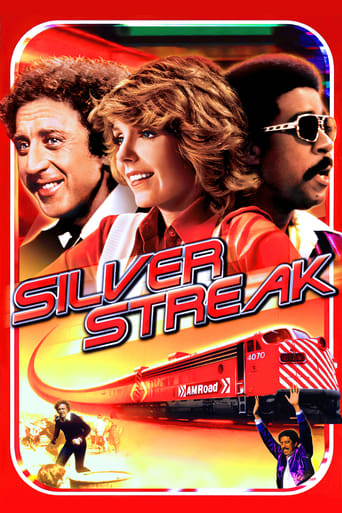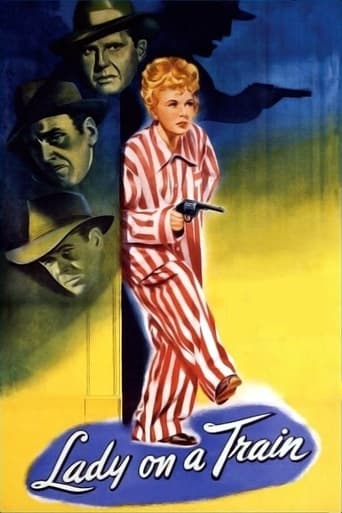
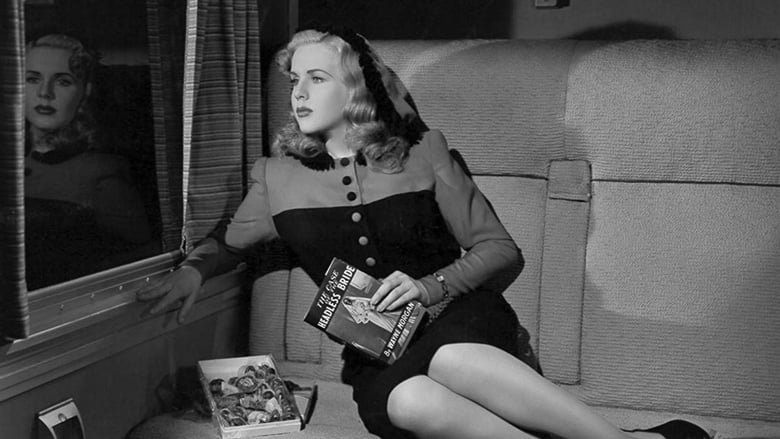
Lady on a Train (1945)
While watching from her train window, Nikki Collins witnesses a murder in a nearby building. When she alerts the police, they think she has read one too many mystery novels. She then enlists a popular mystery writer to help her solve the crime on her own, but her sleuthing attracts the attentions of suitors and killers.
Watch Trailer
Cast


Similar titles
Reviews
As Good As It Gets
Absolutely Fantastic
It's funny watching the elements come together in this complicated scam. On one hand, the set-up isn't quite as complex as it seems, but there's an easy sense of fun in every exchange.
This is one of the best movies I’ve seen in a very long time. You have to go and see this on the big screen.
Deanna Durbin (Nikki) is an avid murder mystery fan. She reads all the books and her favourite author of the moment is David Bruce (Wayne). While riding on a train and engrossed in yet another murder story, she witnesses an actual murder as her train passes by an apartment. On arriving at the station, she goes to report it but the police dismiss her. She seeks out Bruce, and together they embark upon solving the case.It's a film that promises more than it delivers given the cast. It's too complicated at times as there are too many characters and the film is completely unbelievable. You definitely have to suspend belief which ruins things for me. No way would any of this happen. Still, Durbin is OK as she leads us through things and we get a twist at the end. It's all done as a comedy which is a pity. It could have been a more powerful effort if played straight. And I regret to say that Durbin sings 3 songs – atrociously, of course.It's OK if a little disappointing. Not as good as her comedies with Charles Laughton – "It Started With Eve" (1941) and "Because of Him" (1946) or her film noir effort "Christmas Holiday" (1944) in which she actually sings a good song! She's likable in this but you can skip it. And Edward Everett Horton's schtick really drags.
Lady on a Train offers a change of pace for actress Deanna Durbin. A mystery story played with adequate elements of comedy, suspense and music. Miss Durbin plays a small-town girl visiting New York and as her train pulls into the station, looking out of her window she witnesses a man being bludgeoned. The police are notified but dismiss her story as the product of an overactive imagination. Amazingly she is able to acquire the help of a mystery writer ( David Bruce ) who helps her piece together the complicated facts of the mysterious murder. When this picture was made film noir was in full swing, and this story cleverly uses a screwball comedy approach that is most suitable for the lovely, young Deanna Durbin. The story of course allows the star most popular for her amazing singing ability to delight audiences with the songs " Silent Night " and a most sultry rendition of " Night and Day." There is also a good amount of suspense focused on the shady murder mystery, which involves a series of strange suspects and some very interesting ulterior motives. The film has an impressive assortment of actors of the time including, Ralph Bellamy, Dan Duryea, Edward Everett Horton, Allen Jenkins, Patricia Morison, and William Frawley all help to keep the story moving at a good pace. Although the film seems dated now, it's still worth a curious look at the talented Deanna Durbin who charms with a very sexy close-up to end the film.
Any allusions made here to similarities to an Agatha Christie plot are inadvertently correct. Up to Nikki Collins' (Deanna Durbin's) departure from the train at the outset of the story, the plot line closely follows Agatha Christie's "4.50 from Paddington," (1957). The story was published in the United States with the title, "What Mrs. McGillicuddy Saw!" In 1961, Margaret (later Dame Margaret) Rutherford, filmed her first of five Miss Marple roles, "Murder, She Said," based on "4.50 from Paddington." Although audiences across the globe adored Miss Rutherford's indomitable antics, Agatha Christie took a dim view of the comedic aspect of her Miss Marple as rendered by Margaret Rutherford. One must wonder what the author had to say of the farce made of her story in this 1945 Universal Pictures version. Under various titles, and subsequent to the aforementioned Rutherford film, "4.50 from Paddington" was presented by the BBC in 1987 and starred the woman who played Mrs. Kidder in the original movie, Joan Hickson. In 2004, ITV presented"4:50" in a series of Miss Marple stories which featured Geraldine McEwan in the principal role. A 2008 French film, Le crime est notre affaire, is a late adaptation of the same Christie story
A film noir starring Deanna Durbin may seem as natural as eating an oyster with a splash of chocolate syrup, but if you're adventurous, well, somebody has to be the first to try it. Actually, the movie's a pleasant romp. Lady on a Train is a comedy mystery with some nice noir characteristics...shadows, trains, bodies and a climax in a darkened office building that would make Dick Powell feel right at home. Nikki Collins (Durbin) is a society deb from San Francisco coming in on the train for a visit to New York. As the train pulls into Grand Central, she casually looks out the window of her compartment and sees an elderly gentleman in an office across the way having his head bashed in by a crowbar-wielding murderer. She can see the victim's face, but not the assailant's. There are two things we need to know about Nikki. First, she's an energetic, confident young woman who is as determined as they come. Second, she loves mysteries. In fact, she was reading Wayne Morgan's "The Case of the Headless Bride" when she looked out the window. She goes to the police but they don't take her seriously. Plus, it's a few days before Christmas and no one is looking for more work than they already have. What's an heiress to do? Nikki looks up Morgan's address and pesters and prods him into using his skills as a detective to help find the killer. Nikki isn't fazed when Morgan (David Bruce) tries to tell her he's an author, he's shy, he's faint-hearted and he's no detective. She's determined to enlist his help, but in the meantime she's learned who the victim is, a very rich man. And she learns not only where he lived, but that his family is saying the man died accidentally in a fall. So off she goes to the family mansion in the dead of night with snow starting to sift down...and just happens to be mistaken for Margo Martin, a singer at The Circus nightclub who was the "fiance" of the dead man. Wouldn't you know it, the old man's will leaves nothing to his two nephews, the eccentric and courtly Jonathan Waring (Ralph Bellamy) and the charming and untrustworthy Arnold Waring (Dan Duryea), but everything to Margo. Nikki has to deal with Danny, the Waring's thug of a chauffeur, and Mr. Saunders, the cold- eyed proprietor of The Circus who always carries a large white cat cradled in one arm. She finds she has to keep impersonating Margo, even if it means she has to sing "Night and Day" and "Give Me a Little Kiss, Will You, Huh?" as part of Margo's act. Tailing after her, like a small tug in the wake of a cruiser, is Morgan. I think they're starting to be attracted to each other. Up to now the movie has been amusing, light-weight and very much a vehicle for Deanna Durbin. She's no longer the little girl with a wonderful voice, as she was in the Thirties and Early Forties. She's a grown-up, and the studio is showing her off as a romantic lead who has a sense of humor. She's impeccably photographed, stylishly dressed and confident as all get out. It all pays off in the last 15 minutes when Nikki finds herself in the same office building where the killing took place. She's got both nephews looking for her, and one of them knows where the crowbar is hidden and intends to use it. There's the garage with the creaking car lift, the great storage floor where mounds of grain are piled, there are all the empty offices and hallways...and everything is dark and shadowed. Nikki keeps her cool, although she's quite happy when Morgan finally shows up to help save her. "Oh, darling," she tells him afterwards, as he faints, "you were wonderful." Could the movie end without a marriage? And we know Deanna Durbin has grown up when, just before we see "The End," there's a charming moment of sexual innuendo on the train taking Nikki and Morgan, newly married, to San Francisco. Deanna Durbin never seemed to take herself too seriously; she was always ready for a pratfall in the mud or a joke at her expense. She may not have had Judy Garland's overwhelming charisma, but she came close for a lot of people. More importantly, she didn't have Garland's edgy sense of an impending neurotic breakdown. Durbin was the girl next door with a sunny disposition, a great sense of humor and with a bit of the tomboy about her. In 1948, when she was 27, she announced her retirement. She and her husband, who directed this film, moved to France, where she still lives. She has never shown any interest in her movie-making past. She has never made another movie, has refused all requests for interviews and photographs, and has devoted herself to living a sane life. Good for her. The studio surrounded her in this film with some excellent character actors. In addition to Duryea and Bellamy, there's George Coulouris, Allen Jenkins, Edward Everett Horton, Samuel S. Hinds and William Frawley. And in a small role is Patricia Morrison, who three years later would be wowing the crowds singing "I Hate Men!" in Kiss Me Kate.


